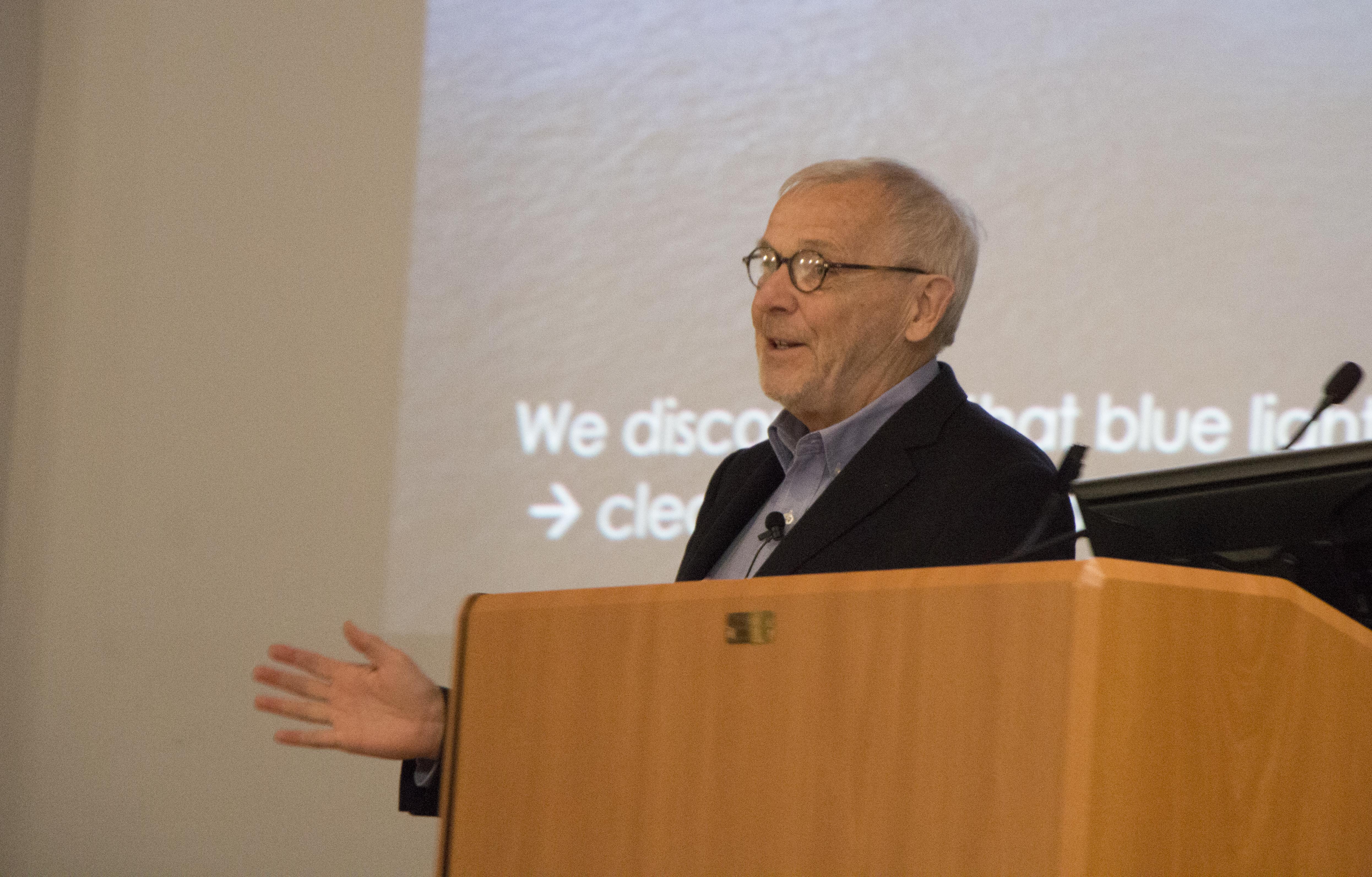
Students learn about “IceCube” telescope at Astronomy Day
One of the seven wonders of modern astronomy was revealed Monday night at the annual Astronomy Day lecture in Farber Hall. Guest speaker Francis Halzen, a professor at University of Wisconsin-Madison gave a presentation about recent developments in astronomy using a new kind of telescope, the IceCube.
Astronomy Day started in 2002 with geologist and last man on the moon, Harrison Schmitt. Every year since, Astronomy Day is organized by the Outreach Committee in the USD Physics Department. It’s intended for anyone who is curious about the world and universe around them.
Ian Shoemaker, assistant physics professor and Outreach Committee chair, said he was excited USD students and community members were able to learn about the new IceCube telescope.
“It’s a whole new window on the universe and new way of doing astronomy,” Shoemaker said. “In general, Astronomy Day is intended to get students and the general public excited about some of the very exciting new results in astronomy and physics.”
Halzen discussed the aptly named IceCube neutrino telescope that has found a new source of neutrinos with extreme energies that appear to come from outside the Milky Way. He said it’s the “eye” that detects neutrino beams through ice. This particular experiment took place in Antarctica and took Halzen and his team years to complete.
Jessica Mullenberg, junior human resource management major, attended the Astronomy Day lecture for the first time and said the IceCube experiment was unique and interesting.
“I had no idea this experiment was going on in the South Pole,” Mullenberg said. “The innovation that it took just to drill down that far in ice is just amazing.”
Mullenberg is taking an astronomy course along with senior musical theater major Tabitha Bass, who also attended Astronomy Day. Bass said she enjoyed seeing what she’s learning in class applied to real experiments.
“I think it’s really interesting,” Bass said. “I knew what neutrinos were because of my astronomy class, but I didn’t realize how much research was going on to discover the molecular structure.”
Jason Wyenberg, a second year graduate student pursuing a Ph.D. in theoretical physics, has attended Astronomy Day for the last two years. Wyenberg studied the results of the IceCube experiment and said it was to hear from an expert on the subject.
“I find physics fascinating as it allows us to study how the universe works at its deepest level, often in weird and unexpected ways,” Wyenberg said. “I’ve been grateful for the USD Physics program over the past several years as I’ve enjoyed some captivating graduate level courses and events such as Astronomy Day lectures.”
Wyenberg said this year’s presentation was particularly interesting because it coincided with his current research. He also said he enjoyed participating in Astronomy Day because of the variety of students who attend.
“I appreciate the general public lecture, because it is fun to see people with all backgrounds engaging with physics,” Wyenberg said. “The past two years people have come away from the general lecture excited with new ideas, and I’m sure that many people will experience that again this year.”


